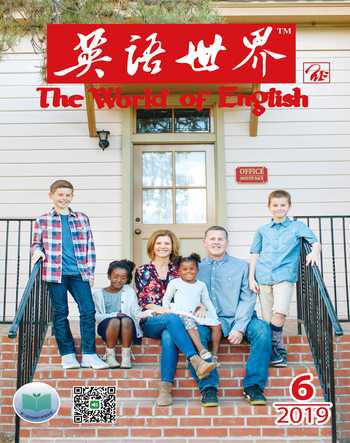Happy Families
Chris Cavey

What is a family? What do you mean when you say ‘my family’? Do you mean your immediate family—you, your husband or wife and your children? Do you mean your extended family—your parents and grandparents, brothers and sisters, aunts and uncles, nieces and nephew… Or perhaps you mean something more complicated. Mixed families are becoming more and more common.
So what is a mixed family?
These days, almost half of all marriages in Britain end in divorce and over 40 per cent of marriages are remarriages—people getting married for a second time (or third, or fourth!). More than 10 per cent of all children in Britain live with one ‘birth’ parent and a step-parent—a parent who isn’t their biological mother or father. The traditional ‘nuclear’ family of two parents and their children is not so traditional any more. A ‘mixed’ family can be a combination of parents, step-parents, children, stepchildren, half-brothers and half-sisters—a rich mixture bringing new possibilities and new challenges to family life.
Debbie’s story
Debbie got married to Steve in 2001 and had two children, Lily and Alex. Unfortunately, Steve and Debbie’s marriage didn’t work out and they got divorced in 2006. The children live with Debbie. In 2008, Debbie remarried. Her new husband, Martin, has three children from his previous marriage. They live with their mother but they visit Debbie, Martin, Lily and Alex at weekends. Then Debbie and Martin had a child, a boy who is half-brother to Lily and Alex and also to Martin’s three other children.
It all sounds a little confusing but Debbie loves her mixed family life. ‘Steve and I had a good divorce,’ says Debbie. ‘We tried very hard to make our marriage work but we realised it wasn’t working—and then we did our best to make our separation as easy as possible for us and our children. Steve lives very close to us and the children see him very often, in fact he sometimes babysits for us.’
Ups and downs
It almost sounds too good to be true but Debbie and Martin are quick to admit that mixed families have their ups and downs. ‘There are difficulties and challenges,’ says Debbie. ‘Different families have different routines and it can be difficult for children to move between their two families. Birthdays and holidays can be tricky. Where do the children go? Who should they spend their time with? Also, when my children are naughty it can be difficult for Martin to tell them off. Things that might be simple in a “traditional” family can be a bit more complicated.’
And how about the children? Martin’s eldest child, Ella, is twelve. ‘I like my two families,’ she says. ‘I live with my mum but visit my dad quite often and I like going to stay with my half-brother and -sister. I’m happy that my mum and dad get along OK. They’re not married any more but it’s good that they can still be friends.’ Is her family unusual? ‘I don’t think so. A few of my friends at school have half-brothers or -sisters. I think it’s normal, really.’
Making family life work
Of course divorce and separa-tion are never easy but many people are finding less painful ways to do it and are changing the way that many people think about families.

